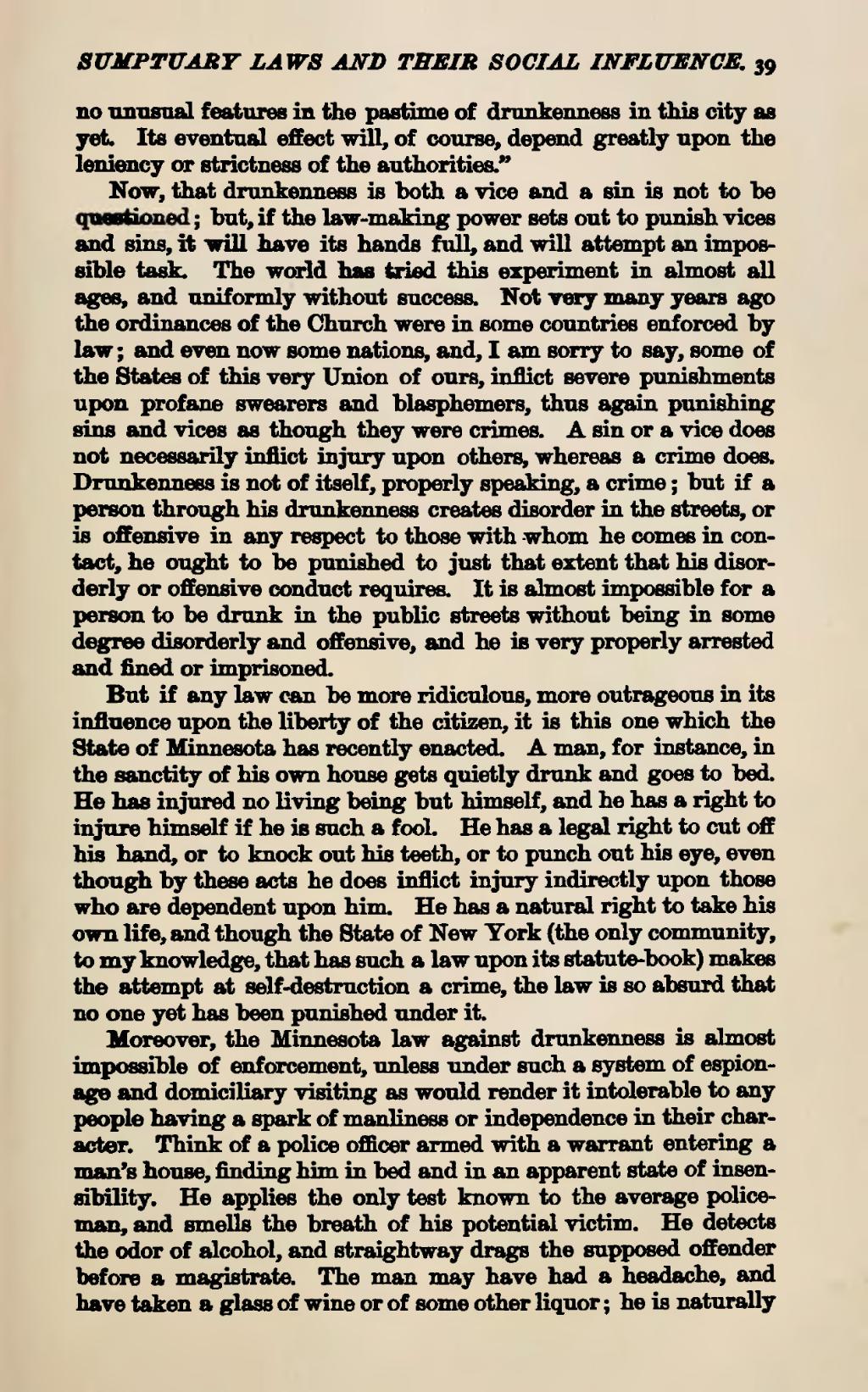no unusual features in the pastime of drunkenness in this city as yet. Its eventual effect will, of course, depend greatly upon the leniency or strictness of the authorities."
Now, that drunkenness is both a vice and a sin is not to be questioned; but, if the law-making power sets out to punish vices and sins, it will have its hands full, and will attempt an impossible task. The world has tried this experiment in almost all ages, and uniformly without success. Not very many years ago the ordinances of the Church were in some countries enforced by law; and even now some nations, and, I am sorry to say, some of the States of this very Union of ours, inflict severe punishments upon profane swearers and blasphemers, thus again punishing sins and vices as though they were crimes. A sin or a vice does not necessarily inflict injury upon others, whereas a crime does. Drunkenness is not of itself, properly speaking, a crime; but if a person through his drunkenness creates disorder in the streets, or is offensive in any respect to those with whom he comes in contact, he ought to be punished to just that extent that his disorderly or offensive conduct requires. It is almost impossible for a person to be drunk in the public streets without being in some degree disorderly and offensive, and he is very properly arrested and fined or imprisoned.
But if any law can be more ridiculous, more outrageous in its influence upon the liberty of the citizen, it is this one which the State of Minnesota has recently enacted. A man, for instance, in the sanctity of his own house gets quietly drunk and goes to bed. He has injured no living being but himself, and he has a right to injure himself if he is such a fool. He has a legal right to cut off his hand, or to knock out his teeth, or to punch out his eye, even though by these acts he does inflict injury indirectly upon those who are dependent upon him. He has a natural right to take his own life, and though the State of New York (the only community, to my knowledge, that has such a law upon its statute-book) makes the attempt at self-destruction a crime, the law is so absurd that no one yet has been punished under it.
Moreover, the Minnesota law against drunkenness is almost impossible of enforcement, unless under such a system of espionage and domiciliary visiting as would render it intolerable to any people having a spark of manliness or independence in their character. Think of a police officer armed with a warrant entering a man's house, finding him in bed and in an apparent state of insensibility. He applies the only test known to the average policeman, and smells the breath of his potential victim. He detects the odor of alcohol, and straightway drags the supposed offender before a magistrate. The man may have had a headache, and have taken a glass of wine or of some other liquor; he is naturally

